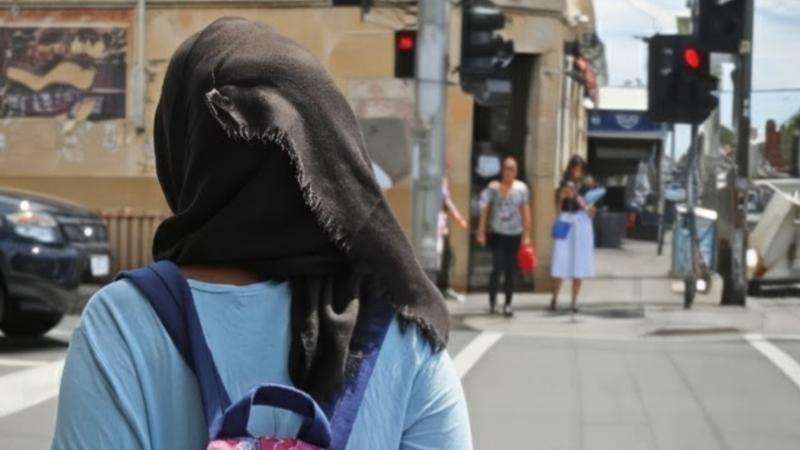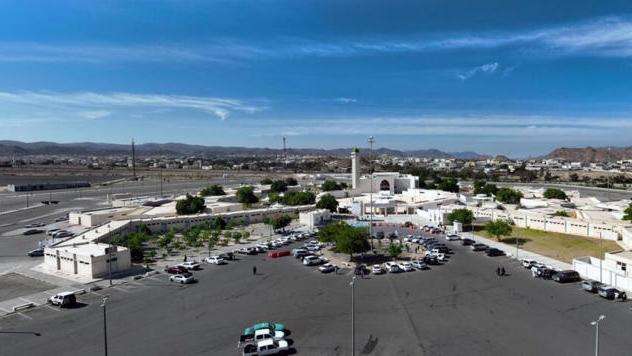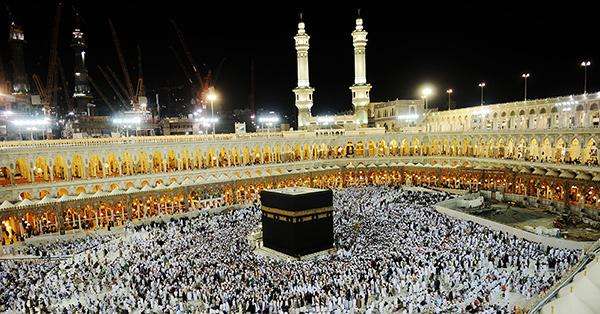Islam is a religion built on pillars and principles. These pillars are believed by Muslims to have been revealed to Prophet Muhammad, Peace Be Upon Him (PBUH) over the period he was alive. Allah revealed a complete religion to Prophet Muhammad and at the time of his death, everything about Islam had been revealed. In the Quran, the words of Allah are revealed upon Muhammad and with the help of the angel Gabriel, Allah says in chapter 5 verse 3, “Today, I have perfected your religion for you, and have completed My blessing upon you, and chosen Islam as Dīn [religion and a way of life] for you. But whoever is compelled by extreme hunger, having no inclination towards sin, then Allah is Most-Forgiving, Very-Merciful.”
The pillars of Islam are five. The first and most important is the declaration of faith and belief in the oneness of Allah and the proclamation of Muhammad as the final messenger of Allah. This is called shahada and anyone who converts to Islam must proclaim it in Arabic, read to him by a Muslim or a scholar. It is also called the key of the religion and serves as the foundation stone towards embracing Islam. It is followed by observing the five daily prayers in their prescribed time and manner. This is the second pillar of Islam.
The third pillar of Islam is the payment of alms, offering a prescribed part of their wealth as charity. This is called Zakat. The fourth pillar is fasting during the month of Ramadhan and the fifth and last pillar is performing the pilgrimage to Makkah. This is called Hajj.
Hajj is a visit to the holy city of Makkah, Saudi Arabia, that takes place annually. The visit is done in Dhul-Hajj, the eleventh month of the Muslim calendar. Hajj is an important pillar of Islam and a lifetime spiritual journey for Muslims. Makkah is regarded as a sacred and divine place for Muslims in that it is the birthplace of Muhammad and where he received his first revelation of Islam. It is an essential pillar which is incumbent upon every Muslim who is financially stable and physically upright. Hajj is performed once in a lifetime but for those with the means and the ability, the reward is handsome if the pilgrimage is undertaken again and again.
The history of performing pilgrimage dates back to Prophet Abraham and his son Isma’il, who are believed to have built the house in Makkah, in present-day Saudi Arabia. While opinions vary regarding the exact number of times that Prophet Muhammad performed Hajj, it is narrated that he performed one Hajj, also known as the farewell Hajj, and three lesser pilgrimages. However, the prophet continued to teach his companions about the rites linked to the performance of pilgrimage.
Allah says in the Holy Quran, “We have rendered the shrine (the Kaba) a focal point for the people, and a safe sanctuary. You may use Abraham’s shrine as a prayer house. We commissioned Abraham and Ismail: ‘You shall purify My house for those who visit, those who live there, and those who bow and prostrate.’” (Quran 2:125)
Muslims believe that whoever performs Hajj and observes it in its correct manner will be expiated of his sins and upon his return, shall be considered free of sin like an infant. The preparation for Hajj is often a long and demanding process where pilgrims are expected to meet their financial needs and possess the physical ability to meet the demands of the activities of Hajj. They must also meet the requirements of the host country, Saudi Arabia, which necessitate the services of a travel agency to process travel documents. In a prescribed teaching of the prophet, a Muslim is expected to ensure that before going on pilgrimage he leaves behind enough provision for his family to cover their needs during his absence. One is also required to avoid using money that has been gained unlawfully and to clear debts owed. Women are not allowed to travel alone and should be accompanied by their mahram, a person who cannot marry them because of blood relations and family ties. The elderly ought to be accompanied by an elder who will guide them through the acts.
Once the above conditions are met, the pilgrim enters the state of Ihram. Ihram is a state of purity and requires the wearing of specific clothing. For men, this consists of two white seamless sheets that are wrapped around the body, while women may wear sewn clothes. The activities connected with the performance of Hajj are grouped into three categories: pillars, obligations, and optional activities. Pillars must be met otherwise the entire exercise is deemed null. Obligatory acts of pilgrimage have recompense – and consequences if not observed – while optional activities, also known as sunnah, bring greater reward if undertaken, but do not attract retribution.
Hajj has four essential pillars. It is spearheaded by Ihram, a state of purity and intention. It is the act of consecration. The prophet said that an action is fronted by intention. When a Muslim is in the state of Ihram, he upholds the virtue of equity and equality. This is the first state where one dons at most two pieces of white cloth irrespective of social status, financial strength or background. Both rich and poor set aside their worldly status to only pray and submit themselves to Allah. This is a state of total equity devoid of societal representation. During the state of Ihram, one is prohibited from clipping, trimming or shaving their head.
This is followed by Arafah; standing on the mountain of Arafah throughout the day on a specified day. Prophet Muhammad said that “Hajj is Arafah” and that in performing Hajj it is essential to stand at Arafah. Whoever does not stand at Arafah has missed out on Hajj.
The third pillar is Tawaf Al Ifadhah. This is the circumambulation around the Kaabah, the holy cube that Muslims face during prayer. This is done seven times and without it, the pilgrimage is rendered incomplete. During the circumambulation, the sickly are asked to appoint someone to perform it on their behalf.
The final and most important pillar is sa’yi. This involves running or walking between the mountains of Safa and Marwa. Allah says in the Quran, “Indeed, the hills of Safa and Marwah are among the symbols of Allah. So whoever performs the pilgrimage or minor pilgrimage, let them walk between the two hills.”
Sa’yi commemorates the life of Hajar, the wife of the Prophet Ibrahim, and mother of the Prophet Isma’il.
While it is mandatory to perform the above pillars, there are other obligations that if one fails to fulfil them, he or she will be required to perform other rituals to cover for the omission. They include staying overnight in Muzdalifah, and in Mina during the days of Tashriq, usually the 11th, 12th and 13th day of the month of Dhu’l-Hijjah. Those whose job is to bring water and tend livestock are exempted.
Stoning the Jamarat – the throwing of pebbles or stones in the right sequence to ward off the devil – is another ritual performed by pilgrims. During this period a pilgrim may shave their head or cut their hair.
The farewell pilgrimage
The farewell tawaf (tawaf al-wada) marks the end of the activities of the Hajj in its entirety. Hijjatul-Wida (the farewell pilgrimage) was the final pilgrimage performed by Muhammad. When unlike in previous years the angel Gabriel descended twice in the month of Ramadhan to teach the Prophet Muhammad about the Quran, it dawned on him that would be his final year alive. He thus asked his companions to join him in that year’s pilgrimage. The prophet gave his final sermon in 632 CE (10 AH) and asked his companions to be attentive as he was not sure if he would be among them the following year.
Prophet Muhammad’s iconic farewell speech has been preserved in its original form. He said,
“All mankind is from Adam and Eve, an Arab has no superiority over a non-Arab nor a non-Arab has any superiority over an Arab; also a White has no superiority over a Black nor a Black has any superiority over a White except by piety and good action. Learn that every Muslim is a brother to every Muslim and that the Muslims constitute one brotherhood. Nothing shall be legitimate to a Muslim which belongs to a fellow Muslim unless it was given freely and willingly.
“Do not therefore do injustice to yourselves. Remember one day you will meet Allah and answer your deeds. So beware, do not astray from the path of righteousness after I am gone.
“O People! No Prophet or apostle will come after me and no new faith will be born. Reason well, therefore O People! and understand words that I convey to you. I leave behind the two things, the Quran and the Sunnah and if you follow these you will never go astray.
“All those who listen to me shall pass on my words to others and those to others again; and may the last ones understand my words better than those who listen to me directly.
“O Allah, be my witness, that I have conveyed your message to Your people.”
Pilgrims must perform the Tawaf al-Wada. This is the last obligatory stage of Hajj. Pilgrims are required to circumambulate the Kaabah seven times, finally offering two prayers before pronouncing their Hajj to have been a success. It is narrated in the sayings of the prophet that people were ordered to perform the Tawaf al-Wada as the final activity before leaving Makkah; only menstruating women were exempt. It is reported that the prophet said, “None of you should depart until he makes as his last act Tawaf of the House.” (Al-Bukhari, 1755).
Ibn Abbas, may Allah be pleased with him, said, “And the menstruating woman was first ordered to wait until she became clean of it to make Tawaf al-Wada. Then it was permitted for her to leave without waiting.” He said it in reference to the hadith of Prophet Muhammad, in which the beloved Messenger of Allah gave concession for the menstruating women that she should depart before Farewell Tawaf as long as she had made Tawaf of Ifadah. (Al-Bukhari, 1755).
In the old days, Muslim scholars were tasked with the role of teaching and passing knowledge about the Hajj to everyone and specifically to those intending to make the pilgrimage. This knowledge was imparted through Islamic schools and madrasas.
The current generation has been served with a silver spoon. In 2010, a joint Islamic Fatwa was issued by the Muslim Congress League to make available the teachings of Islamic Shariah and Ilm (knowledge) on Islamic online sites. As a result, a wide range of knowledge has been made accessible thanks to social media sites such as YouTube and Kallamulah and Tiktok and a seeker of knowledge need only to log onto his device to have access. Many scholars have also joined the bandwagon, recording and uploading their lectures for general viewing by Muslims. A good example is Sheikh Mufti Ismail Menk of Zimbabwe and Sheikh Zakir Naik of India.
Having completed their Hajj, pilgrims now undertake the optional task of visiting Madina, the second holiest city after Makkah, with the sole intention of visiting the prophet’s grave. Madina also serves as an Islamic centre where pilgrims view monuments and familiarise themselves with the history of Islam.
The Hujaj (pilgrims) often buy Islamic gifts for their beloved ones and carry home with them Zamzam water, which is believed by Muslims to be pure and holy.
--
Author: Mohamed Abdi Aliow is the Chief Editor and Content Creator at Nomad TV, Kenya.




_7.jpg)



.svg)
